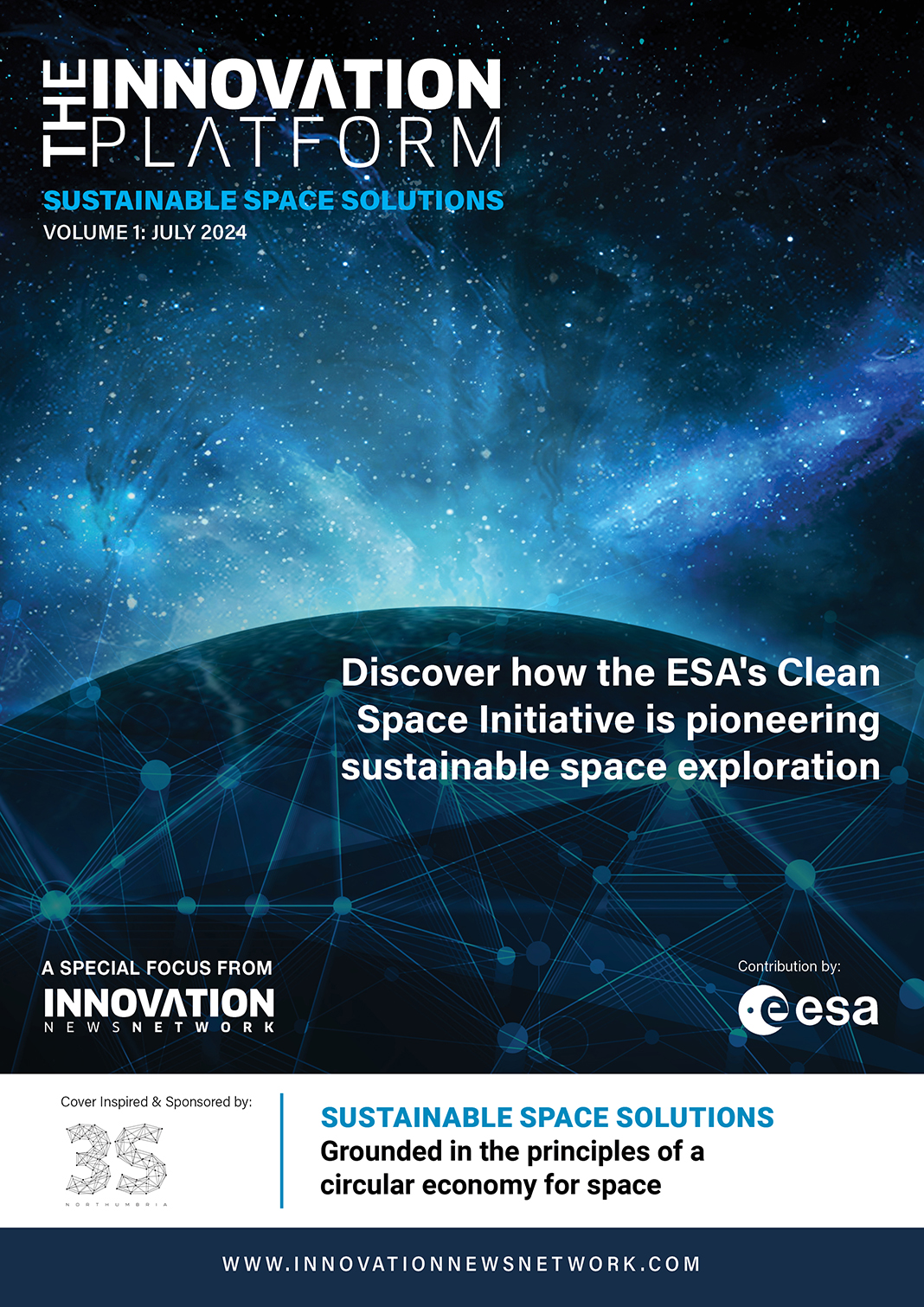With the ever-increasing amount of debris in space, achieving a circular space economy has never been more important.
The benefits of the space circular economy go beyond achieving sustainability in space resource utilisation.
The shift to a sustainable future in space will enable the deployment of space structures that were previously unfeasible to launch from Earth, enhance spacecraft resilience and flexibility, and free space hardware from the harsh conditions of launch.
This eBook brings together insightful articles that explore various principles of a circular economy in space, challenges we face in achieving this and worldwide collaborations to make our missions more sustainable.
The ESA Zero Debris approach
The eBook kicks off by taking a look at the European Space Agency’s Zero Debris approach. ESA provides an overview of their approach to tackling the debris that has accumulated in space and the initiatives to reduce it.
ESA’s ‘Zero Debris approach’ aims to address this risk by significantly limiting the production of debris in Earth and Lunar orbits by 2030 for all future missions, programmes, and activities.
In the article, ESA discusses its Life Cycle Assessment (LCA) tool for space activities. LCAs, governed by ISO standards 14040 and 14044, help to quantitatively assess the environmental impacts of products, processes, or services throughout their lifecycle. It offers benefits like supply chain insights, identifying hotspots (areas of environmental improvement), informed technology choices, and effective environmental communication.
The importance of a circular space economy
Later in the eBook, Ralph ‘Dinz’ Dinsley and Professor Christopher Newman of 3S Northumbria discuss the importance of a circular space economy and the hurdles the company is overcoming to achieve this.
3S Northumbria is pioneering the creation of a circular space economy. 3S Northumbria is a proud signatory of the Zero Debris Charter, and encourages even greater efforts in respect of sustainability.
The company is advocating that the Charter, rather than being an end of itself, should herald a multifaceted, internationally coordinated drive towards the establishment of a broader circular economy for outer space activities.
The development of a circular economy for space is aspirational and yet achievable.
The increasing threat and future of space debris
The eBook’s final article takes a look at how space debris is becoming a major hazard and the efforts to subside this following the signing of the Zero Debris Charter.
In the past two years, more satellites have been launched than in the entire six decades of space exploration. This means there are millions of pieces of space debris flying in Low Earth Orbit (LEO).
Today, around 28,160 tracked objects remain in orbit.
Due to the rate of speed and volume of debris in LEO, current and future space-based services, explorations, and operations pose a safety risk to people and property in space and on Earth.
Because of this, over 40 companies, NGOs, and research institutions signed ESA’s new Zero Debris Charter at the Berlin International Airshow.
Furthermore, over 100 organisations worldwide have registered their intent to sign and join the collaborative effort in the coming months – showing a real commitment to tackling the growing problem of space debris.


